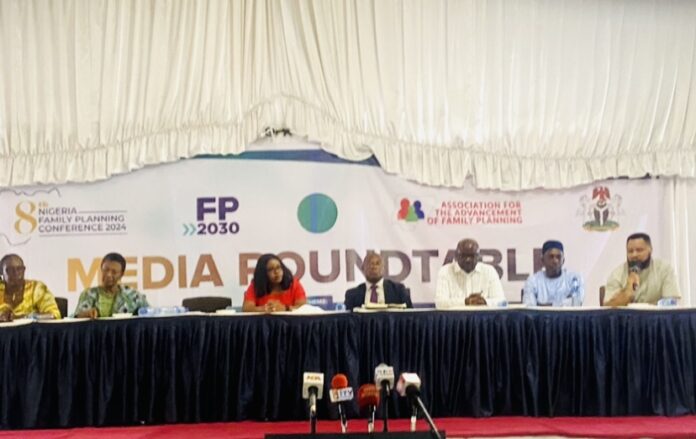Nigerian population may hit 450 million by 2050, family planning expert warns


NIGERIA’s population may reach 450 million by 2050 unless urgent action is taken to reduce the nation’s fertility rates.
The chairman of the Association for the Advancement of Family Planning (AAFP), Ejike Oji, stated this while addressing journalists at the Media Roundtable for the 8th Nigeria Family Planning Conference in Abuja, on Tuesday, November 19.
Oji stated that the country adds at least four million people to its population annually, a growth rate he described as geometric and unsustainable.
The ICIR reports that following Oji’s prediction, Nigeria’s population will almost double its current size of 239 million in 26 years.
The event, hosted by the AAFP in collaboration with the Federal Ministry of Health and Social Welfare, brought together journalists, policymakers, and family planning stakeholders to discuss critical issues ahead of the biennial conference.
“If this trend continues, we could be adding six million or even 10 million people annually in the coming years,” Oji said, adding that “without reducing our fertility rate to four by 2030, Nigeria risks serious socio-economic challenges.”
Comparing Nigeria’s situation to nations like India and China, which he said successfully curbed fertility rates and invested in their youthful populations to drive economic growth, Oji stressed that family planning remained a critical tool for achieving sustainable development.
He said Nigeria’s fertility rate had decreased from 5.3 to 4.8, citing data from the 2023 Nigeria Demographic and Health Survey (NDHS).
While noting that the progress was notable, he called for greater efforts to meet FP2030 targets, warning that failure to act decisively now could result in irreversible challenges in the future.
In her contribution, a consultant at AMREF International, Ifesinachi Eze, highlighted the critical role of private sector engagement in addressing family planning and reproductive health (FP/RH) needs during emergencies.
While using the story of one Amina, a displaced woman from northern Nigeria, to illustrate the challenges faced by women in conflict zones, where access to healthcare is severely disrupted, she called on the concerned authorities to work towards birth control.
“Disruptions in family planning (FP)/reproductive health (RH) services due to conflict, natural disasters, or pandemics leave women with unmet needs, straining already fragile health systems.”
Eze announced the development of a private sector engagement guide for FP/RH supply chains in humanitarian settings under USAID’s PROPEL Adapt project.
This guide, created in collaboration with FP2030, she said outlined strategies to enhance private sector involvement in maintaining FP/RH services during crises.
She identified critical areas for private sector contributions, including logistical support, data-driven forecasting, funding and rapid response.
Eze further called for stronger public-private partnerships to combine government policy expertise with private-sector innovation and efficiency.
She cited success stories where such collaborations effectively addressed FP/RH challenges, urging the media to amplify these efforts to inspire further private-sector involvement.
The ICIR reports that the media roundtable set the stage for the 8th Nigeria Family Planning Conference (NFPC), focusing on advancing family planning initiatives within the framework of the Nigeria Health Sector Renewal Investment Initiative.
Other discussions at the roundtable revolved around pressing issues such as bridging the gap between policy and practice, ensuring equitable access to family planning services, and leveraging technology and private sector investments for sustainable progress.